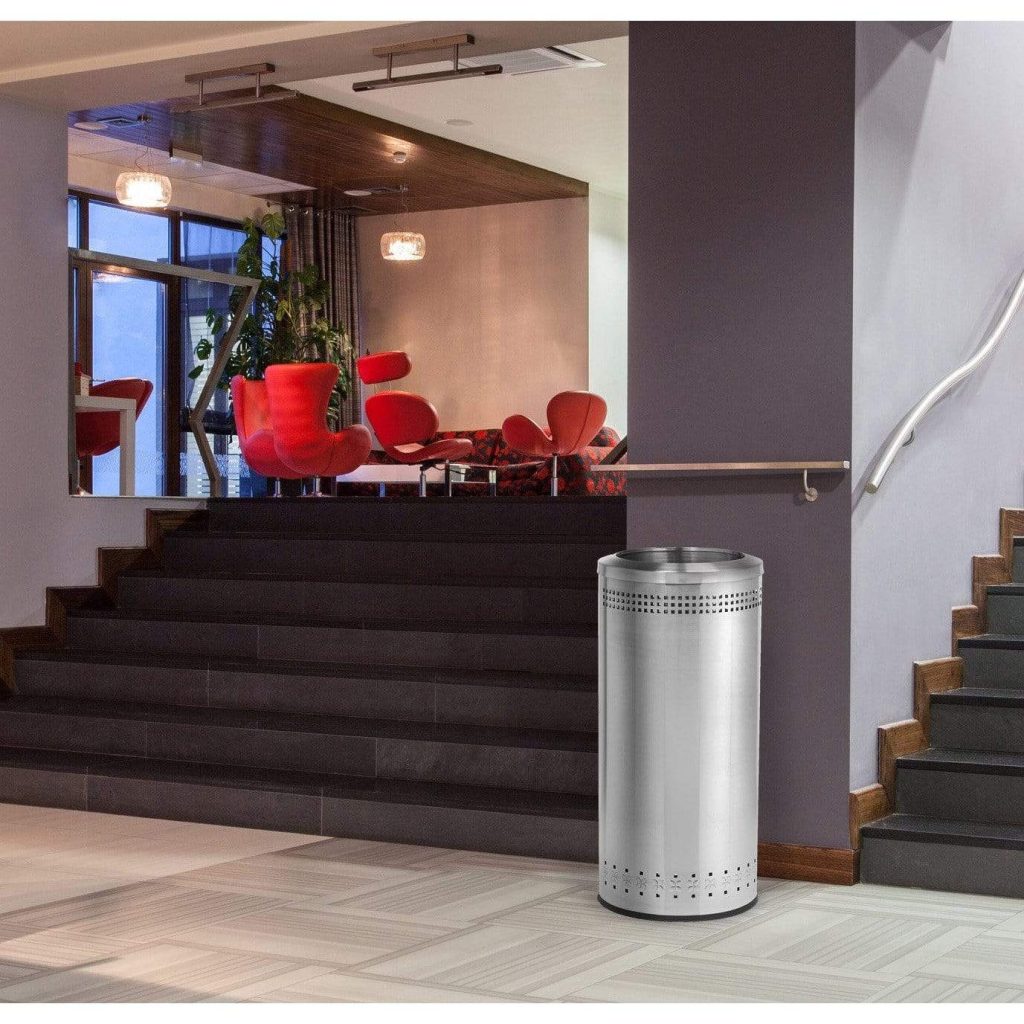Commercial trash cans play a pivotal role in enhancing sanitation and hygiene in public spaces, contributing significantly to the overall health and well-being of communities. By providing designated receptacles for waste disposal, these trash cans help to manage and reduce litter, thereby maintaining cleanliness and preventing the spread of diseases. One of the primary ways commercial trash cans improve sanitation is by controlling litter. In the absence of adequate trash receptacles, individuals are more likely to dispose of waste improperly, leading to unsightly litter in public areas such as streets, parks, and plazas. This litter not only detracts from the aesthetic appeal of these spaces but also poses significant health risks. Decomposing organic waste can attract pests like rats and insects, which are known carriers of various diseases. By offering a convenient and accessible means of waste disposal, commercial trash cans mitigate these risks, helping to keep public spaces clean and hygienic. Moreover, commercial trash cans are often designed with features that enhance their sanitary benefits. For instance, many are equipped with lids that help contain odors and prevent pests from accessing the waste inside.

Some modern commercial trash cans even incorporate hands-free operation through foot pedals or motion sensors, reducing the need for direct contact and thereby minimizing the spread of germs. These features are particularly important in high-traffic areas where the risk of contamination is higher. The strategic placement of commercial trash cans also plays a crucial role in promoting hygiene. When trash cans are conveniently located, people are more likely to use them. Public spaces with well-placed trash cans experience lower levels of littering, as individuals are less tempted to discard waste improperly when a trash can is readily accessible. This strategic placement helps in creating a culture of cleanliness and responsibility among the public. Furthermore, commercial trash cans can contribute to more effective waste management practices. In many urban settings, these receptacles are part of a broader waste management system that includes regular collection and disposal services.
By ensuring that waste is collected frequently and efficiently, municipalities can prevent the accumulation of garbage, which can become a breeding ground for bacteria and other pathogens. Additionally, some commercial trash cans are designed to facilitate recycling, with separate compartments for different types of waste. This not only helps in reducing the overall volume of waste but also promotes environmental sustainability. In addition to their functional benefits, commercial trash cans can also serve as tools for public education and awareness. Many trash cans in public spaces are adorned with messages encouraging proper waste disposal and highlighting the importance of maintaining cleanliness. These messages can reinforce positive behaviors and remind individuals of their role in keeping public spaces sanitary. By incorporating features that enhance their sanitary benefits and by being strategically placed, these trash receptacles contribute significantly to the cleanliness and overall health of communities. The integration of commercial trash cans into comprehensive waste management systems further amplifies their positive impact, making them indispensable in urban planning and public health strategies.
